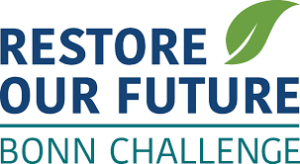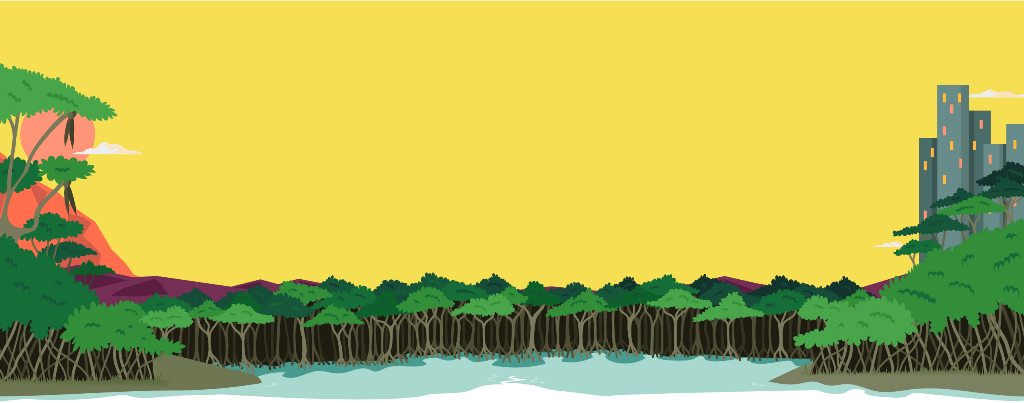On December 12, 2022 at the UN Biodiversity Conference (COP15) in Montreal, Quebec, Canada is convening partners around the world to call for greater collaboration toward addressing the dual crises of biodiversity loss and climate change. Conserving nature and halting rapid biodiversity loss is essential to combating climate change and building resilience to its impacts.
At COP15, Jonathan Wilkinson, Minister of Natural Resources, and Steven Guilbeault, Minister of Environment and Climate Change (ECCC) and Minister responsible for Parks Canada, announced that Canada had pledged to join the Bonn Challenge.
 “I was pleased to join representatives from the International Union for Conservation of Nature to announce that Canada will be initially designating 19 million hectares of land for ecosystem restoration under the Bonn Challenge. We are working with Indigenous communities, provinces and territories to protect and restore nature, including through our commitment to planting two billion trees. As the world gathers in Montreal for COP15, we look forward to others joining us in the Bonn Challenge to protect nature globally,” said Wilkinson.
“I was pleased to join representatives from the International Union for Conservation of Nature to announce that Canada will be initially designating 19 million hectares of land for ecosystem restoration under the Bonn Challenge. We are working with Indigenous communities, provinces and territories to protect and restore nature, including through our commitment to planting two billion trees. As the world gathers in Montreal for COP15, we look forward to others joining us in the Bonn Challenge to protect nature globally,” said Wilkinson.
The Bonn Challenge is a global initiative aimed at bringing 350 million hectares (875 million acres) of degraded and deforested landscapes under restoration by 2030.
The Government of Canada is making an initial pledge of approximatively 19 million hectares through federal programs managed by ECCC, Parks Canada, and Natural Resources Canada that support on-the-ground landscape and ecosystem restoration activities, including the 2 Billion Trees program.
“By working together, we can address the alarming decline in biodiversity and fight climate change at the same time. Announcing Canada’s pledge to the Bonn Challenge at COP15 is a critical step to position Canada at the forefront of efforts toward halting and reversing nature loss. We hope other countries will follow Canada’s pledge today and join the global efforts to restore healthy and protected ecosystems,” explained Guilbeault.
Canada is one of a few countries with large, healthy natural ecosystems. Canada’s ecosystems – forests, wetlands, peatlands and prairies to name a few – are an important part of Canadians’ heritage and are key elements of their future prosperity and well-being.
The restoration of ecosystems and landscapes is a powerful nature-based solution to address climate change and bring back habitat for wildlife.
Building on the momentum from COP15 and working together with provincial, territorial and Indigenous partners and other stakeholders, the Government of Canada is taking a holistic approach to restore degraded landscapes, protect and conserve nature and biodiversity, and improve human and community well-being effectively and equitably.
“As the Secretariat for the Bonn Challenge, IUCN is delighted to welcome this landmark pledge from the Government of Canada. With this pledge, Canada is first out of the gate to demonstrate tangible leadership on restoration goals for the post-2020 Global Biodiversity Framework and joins a cohort of nations that are united in recognizing that restoration of ecosystems can be a driver for improved lives, improved economies and better prospects for the future,” said Carole Saint-Laurent, Head of the Bonn Challenge Secretariat, and Head of the Forest and Grassland Team, Centre for Conservation Action, International Union for Conservation of Nature (IUCN).
The Bonn Challenge was launched by the International Union for Conservation of Nature (IUCN) and the Government of Germany in 2011 to foster momentum toward and raise the importance of landscape restoration. The Bonn Challenge promotes nature-based climate solutions, the restoration of ecological functions and the enhancement of human well-being.
It strives to bring 350 Mha of degraded and deforested landscapes under restoration by 2030 using a continuum of restorative activities (from enhancement of protected areas to active ecosystem management and rehabilitation of degraded areas).
Meeting this goal would result in removing 13-26 Gt of CO2 from the atmosphere and generating $9 trillion USD in ecosystem services by 2030.
With the addition of Canada, there are currently 75 pledges to the Bonn Challenge from 62 countries for a total global pledge of almost 230 Mha.
Other pledging countries include the United States (15 Mha), Mexico (8.5 Mha, plus four subnational pledges totaling 3.7 Mha), France – south region (1.6 Mha), Scotland (170,000 ha) and India (26 Mha).
Natural Resource Canada‘s 2 Billion Trees program is dedicated to supporting new tree planting projects using nature-based solutions to fight climate change and permanently increase forest cover in Canada.
Environment and Climate Change Canada, through the Canada Nature Fund and the Nature Smart Climate Solutions Fund, is engaging and partnering with provincial, territorial and Indigenous partners toward restoring Canada’s vast and diverse landscapes in order to recover and protect biodiversity and species at risk.
Parks Canada has nearly 40 years of experience using prescribed fire. To address the impacts of climate change and historic fire exclusion, Parks Canada is using prescribed fire to restore and maintain ecological integrity in fire-adapted ecosystems and to reduce the risk of wildfire to communities and infrastructure.
Images courtesy of The Bonn Challenge.

